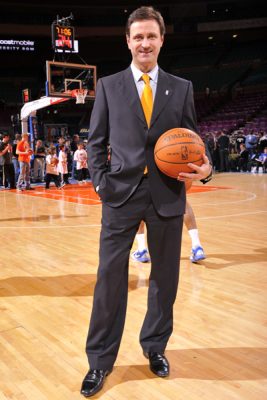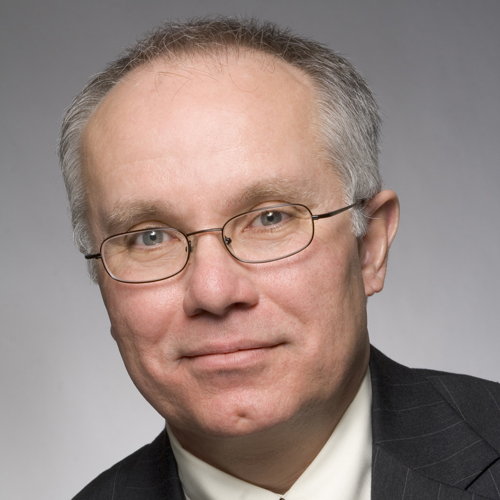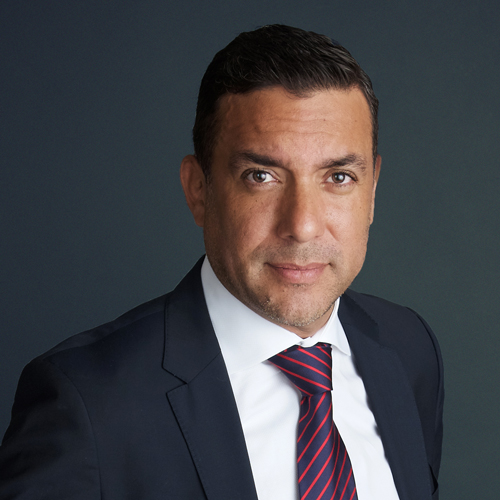
Basketball wasn’t Philippe Moggio’s first love, but he quickly got a first-hand education on the passion the sport engenders, one that stuck with him all the way to a position as the senior vice president, Latin America at the NBA.
As a star tennis player at Duke University, Moggio would need to walk through “Krzyzewskiville,” the village of tents occupied by students hoping to get into a Duke Blue Devils basketball game. “I quickly understood the passion behind basketball and what that can drive,” Moggio chuckles.
Rather than jump immediately to working for a professional sports organization after graduation, Moggio first stepped into professional sports, moving back to his home country of Colombia and playing in the South American tennis circuit. His skill was such that he represented Colombia in multiple Davis Cup competitions. “The discipline and the work ethic that sports teaches any individual is a great skill,” he explains. “A lot of that transcends into the corporate world. Someone who has dedicated a lot of their life to a sport will bring that level of passion, discipline, and work ethic.”
Moggio brought those skills to bear on investment banking, following an MBA at the University of Western Sydney in Australia. Over five years in New York between Dutch banks ING Barings and ABN AMRO Bank, N.A., Moggio developed a strong focus in the media and telecom industry within investment banking.
From there, he was able to leverage the ability to analyze an industry,
a business, and growth into a role that returned to his roots—both in sports and in Latin America. “The idea that I was getting away from Latin America in my banking career was something that was in the back of my mind,” he notes. “The opportunity to work in sports again, to make a transition into the world of sports from a business perspective, was something that was very enticing.”
Moggio’s history in professional sports, business acumen, and understanding of Latin America made him the perfect candidate to lead the NBA’s Latin America development program. Upon taking the position, his first focus was to centralize the team’s efforts out of a New York office and open up operations in local activity in Mexico and Brazil. He and his team were focused on raising the visibility of the sport in the region and promoting growth, from driving more fans to watch the game to actually getting a basketball in a child’s hands. “We’ve learned that if a young boy or girl bounces a basketball that they’re more highly likely to be a fan when they grow up,” Moggio says.
While the team’s centralized office allows them to think about the Latin American region holistically, they also undertake operations personalized to individual countries and areas. The former focus allows the NBA to honor and expand marketing partnerships with organizations like Adidas and Kellogg’s across the entire region; the latter allows them to have local dialogues in target markets to carry out NBA activities.
A major piece of that effort has been bringing the actual NBA game to the region. Since Moggio took the role, the NBA has held preseason games in Mexico and Brazil, as well as two regular season games in Mexico City Arena. Another major achievement was a 2015 game between the NBA’s Orlando Magic and Brazilian professional team Flamengo, a game that saw nearly fifteen thousand basketball fans pack Rio De Janeiro’s HSBC Arena.
However, Moggio’s outreach and growth efforts range much wider than bringing NBA games to Latin America. “We also increased our media distribution and how our content can reach new fans across the region, across multiple platforms,” he notes. That has a lot to do with major partnerships the NBA has undertaken, including Globo in Brazil, the largest media entity in that market, a sponsorship partnership with América Móvil, the largest mobile player in Mexico, and the Caribbean market’s largest mobile operator, Digicel.
Another major focus is expanding the sport in a grassroots way through programs like Basketball Without Borders, which focuses on getting more people in Latin America to play the sport and developing elite talent. “We’ve worked on that program since 2001, hand in hand with FIBA and Nike,” Moggio explains. “We’ve held camps in Brazil, Argentina, Mexico, Puerto Rico, and the Dominican Republic, and it demonstrates the impact of our sport, but also it sends some of our kids the message that reaching the NBA is possible. In general, across all the camps that we’ve held, we’ve seen thrity-seven campers drafted into the NBA. That in itself is a great result.”
The team’s efforts aim to improve basketball’s growth in schools and amateur programs as well, including programs like NBA 3X and Jr. NBA. “It can really help bring people together across communities through teamwork,” Moggio says. “We utilize it as a way to address social issues such as education, youth and family development, and health and wellness, and we do that across the entire region. The social responsibility is something that’s very exciting to be a part of.”
To an outsider, Latin America might be seen as primarily a football-focused region. However, a dedicated fan could list the NBA players that have come from Brazil, Puerto Rico, Mexico, and more, including players making key contributions to teams in the 2016 playoffs. “I’m watching as a fan,” Moggio laughs, excitedly detailing the region’s representatives. “This season we had seventeen NBA players from the Latin American region on NBA rosters, and they are tremendous ambassadors for the sport. They’re very involved in our programs, and we’re always looking at ways that we can support their activity.”
“We utilize [youth programs] as a way to address social issues such as education, youth and family development, and health and wellness, and we do that across the entire region. The social responsibility is something that’s very exciting to be a part of.”
Looking to the future, Moggio sees a lot of potential for basketball growth surrounding the Rio Olympics. The NBA hopes to use the excitement of having so many NBA players in Brazil by hosting an “NBA House,” which will allow fans and partners to experience the excitement on offer at an NBA event in the United States, a major goal of the organization’s entire effort in Latin America. “NBA House will be a celebration of the NBA’s growth and commitment to Latin America,” Moggio says. Beyond that, the growth potential is immense, as he hopes to help the NBA make basketball the second largest sport in Latin America.
When asked whether there will be expansion teams in places like Mexico City in the near future, Moggio cautions that it’s not a plan anytime soon, but is cautiously optimistic. “We certainly always look to how we can have an impact,” he says. “Mexico City is a market we’re particularly focused on because it’s not difficult to get there, it’s the same time zone, and getting to Mexico City might be shorter than some of the travel than our teams have to do within the US.”
By looking for ways to break down barriers between the United States and Latin America, Moggio and his team continues to bring the joy, passion, and excitement of basketball to more and more people.
Editor’s Note: At time of press, Moggio has moved onto a new position as general secretary of North and Central American and Caribbean soccer governance body CONCACAF.

